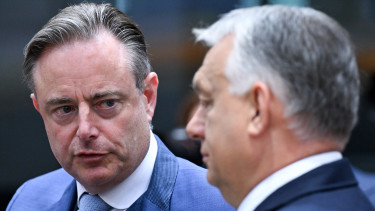EU to launch EUR 37 billion coronavirus investment initiative

The Commission will use all the instruments at its disposal to mitigate the consequences of the pandemic, in particular:
- To ensure the necessary supplies to our health systems by preserving the integrity of the Single Market and of production and distribution of value chains;
- To support people so that income and jobs are not affected disproportionally and to avoid permanent effect of this crisis;
- To support firms and ensure that the liquidity of our financial sector can continue to support the economy
- And to allow Member States to act decisively in a coordinated way, through using the full flexibility of our State Aid and Stability and Growth Pact Frameworks (e.g. budget deficit targets)
Italy will be given full flexibility, and the Commission approves additional national support measures to remedy a serious disturbance to the Italian economy.
To bring immediate relief to hard-hit SMEs, the EU budget will deploy its existing instruments to support these companies with liquidity, complementing measures taken at national level. In the coming weeks, EUR 1 billion will be redirected from the EU budget as a guarantee to the European Investment Fund to incentivise banks to provide liquidity to SMEs and midcaps. This will help at least 100,000 European SMEs and small mid-caps with about EUR 8 billion of financing. We will also provide credit holidays to the existing debtors that are negatively affected.
Az EU továbbá 1 milliárd eurós pénzt fog saját forrásból felhasználni hogy akár 8 milliárd euró értékű hiteleket kapjon 100 000 kiskereskedelmi, turizmus és utazási szektorban tevékenykedő vállalat, akik a leginkább megérezték a vírus hatását.
I am convinced that the European Union can withstand this shock. But each member state needs to live up to its full responsibility and the European Union as a whole needs to be determined, coordinated and united
, Reuters cited von der Leyen as saying.
Von der Leyen did not provide details on where the pledged money would come from. On Tuesday she announced a 25-billion-euro investment plan based exclusively on existing EU funds already committed to EU states.
EU commission vice-president Valdis Dombrovskis said that the leeway offered to states on spending did not amount to a suspension of EU fiscal rules, but would however allow much more spending and the possible interruption of budget commitments made by EU governments.
State aid Framework Flexibility
The main fiscal response to the Coronavirus will come from Member States' national budgets, the European Commission said in a statement. EU State aid rules enable Member States to take swift and effective action to support citizens and companies, in particular SMEs, facing economic difficulties due to the COVID-19 outbreak.
What do current EU rules allow?
Member States can design ample support measures in line with existing EU rules.
- they can decide to take measures, such as wage subsidies, suspension of payments of corporate and value added taxes or social contributions;
- they can grant financial support directly to consumers, for example for cancelled services or tickets that are not reimbursed by the operators concerned.
- state aid rules enable member states to help companies cope with liquidity shortages and needing urgent rescue aid
- member states can decide to compensate companies for the damage directly caused by exceptional occurrences, including measures in sectors such as aviation and tourism.
European Fiscal Framework Flexibility
The Commission will propose to the Council to apply the full flexibility provided for in the EU fiscal framework so that they can implement the measures needed to contain the coronavirus outbreak and mitigate its negative socio-economic effects.
First, the Commission considers that the COVID-19 pandemic qualifies as an “unusual events outside the control of government”. This allows accommodating exceptional spending to contain the COVID-19 outbreak such as health care expenditure and targeted relief measures for firms and workers.
Second, the Commission will recommend adjusting the fiscal efforts required from Member States in case of negative growth or large drops in activity.
Finally, the Commission stands ready to propose to the Council to activate the general escape clause to accommodate a more general fiscal policy support. This clause would – in cooperation with the Council – suspend the fiscal adjustment recommended by the Council in case of a severe economic downturn in the euro area or the EU as a whole.
Relief for airlines
The Commission is proposing today targeted legislation to temporarily alleviate airlines from the “use-it-or-lose-it” rule – whereby air carriers must use at least 80% of their airports slots within a given period in order to keep them within the corresponding period of the next year.
The international and European aviation industry has been particularly hit by the outbreak. The COVID-19 outbreak is having a major impact on our transport systems, given the close interlink of European supply chains, supported by an extensive network of freight services on land, at sea, and airborne.
The Commission is working with Member States to ensure the flow of essential goods across land borders.
Coronavirus Response Investment Initiative
Under this new initiative,
the Commission proposes to direct EUR 37 billion under Cohesion policy to the fight against the Coronavirus crisis.
To this effect, the Commission proposes to relinquish this year its obligation to request Member States to refund unspent pre-financing for the structural funds. This amounts to about EUR 8 billion from the EU budget, which Member States will be able to use to supplement EUR 29 billion of structural funding across the EU.
This will effectively increase the amount of investment in 2020 and help to front-load the use of the as yet unallocated EUR 28 billion of cohesion policy funding within the 2014-2020 cohesion policy programmes.
The Commission calls upon the European Parliament and the Council to swiftly approve this proposal, so that it can be adopted within the next two weeks.
In addition, the Commission is proposing to extend the scope of the EU Solidarity Fund by also including a public health crisis within its scope, in view of mobilising it if needed for the hardest hit Member States. Up to EUR 800 million is available in 2020. The European Globalisation Adjustment Fund has up to EUR 175 million available in to mobilise support for dismissed workers and the self-employed.
Cover photo: Getty Images










